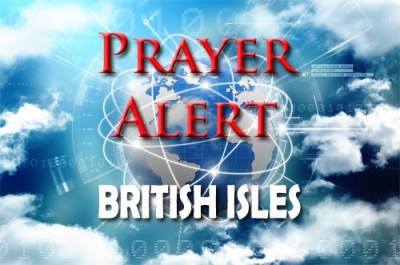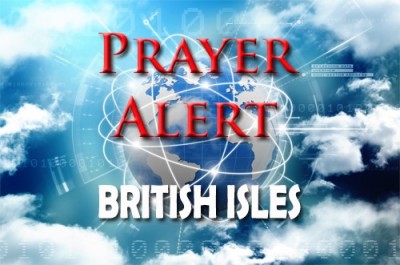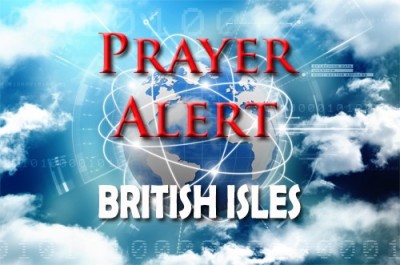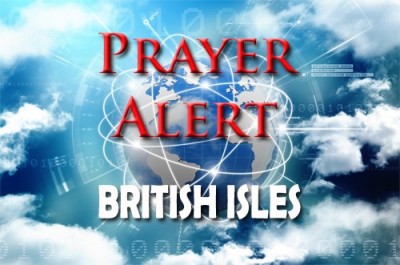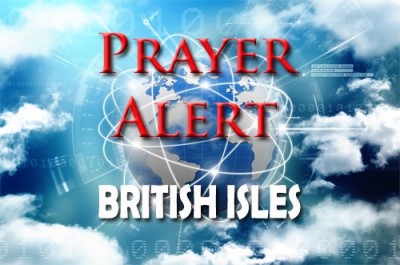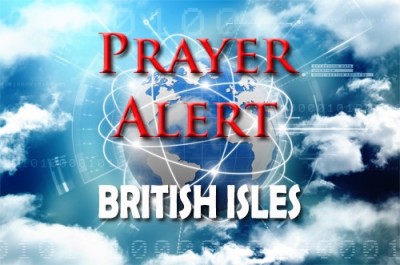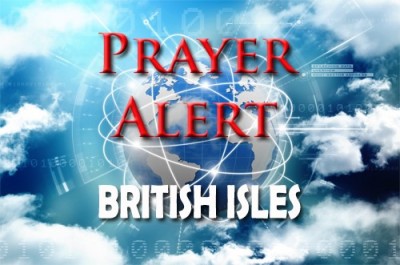Where hope comes to life
01 Aug 2019Through Africa Renewal Ministries in Uganda abandoned babies, child sponsorship, and children's transition care programmes are bringing hope and renewal to thousands of vulnerable children. Each age-appropriate programme (0-19 years) focuses on discipleship, education, healthcare, and leadership. Participants include Loving Hearts Babies Home, Early Childhood Development Programme, Child Development Programme, Bethany Children's Village, and the Mwangaza Children's Choir.
Praying into Bank forecast
01 Aug 2019The Bank of England's quarterly inflation report predicted modest growth in the coming months amid uncertainty over future relationships with Europe, global trade tensions, and worldwide growth slowdown since 2017. Economists are saying, ‘The bank has pulled into a lay-by, got out of the car, and is awaiting clearer indications of influences it cannot control’. Let us pray to the God who controls our destiny; Deuteronomy 28:12 says, ‘The Lord will open the heavens, the storehouse of his bounty, to send rain on your land in season and to bless all the work of your hands. You will lend to many nations but will borrow from none.’ On 1 November, may the UK enter a fruitful season of trade that is blessed by God and aligned to His purposes. Let us ask God to bless businesses with an inspired workforce who embrace opportunities with heaven’s wisdom, so that commerce and industry grow.
Yorkshire, Cheshire and Manchester floods
01 Aug 2019Heavy rain in northern England has left people stranded and blocked roads and railway lines. Firefighters rescued 22 people from flooded properties in Cheshire and Greater Manchester after days of heavy rain - 19mm of rain fell in eight hours. Rivers have burst their banks and ambulances have been taking injured to hospital. One firefighter, rescuing a child, had to be rescued himself from fast-flowing water. That rescue was described as ‘difficult, involving acts of bravery’. Pray for residents and shop-owners when flood waters subside, leaving buildings full of mud and silt, with possessions ruined. Pray for those who have been evacuated twice in three years, having newly replaced items ruined for a second time. Pray for those who were homeless for almost a year last time, now facing the same trauma.
High Court case over Christian assemblies
01 Aug 2019Supported by Humanists UK, atheist parents Lee and Lizanne Harris want a judicial review by the High Court into ‘harmful and divisive’ Christian messages taught in Burford Primary School assemblies. They say their children's human rights are breached because the school isn't offering any alternatives when the children are removed from assemblies. The children go into a separate room with a teaching assistant and an iPad. The school is not a faith school, and the parents enrolled their children there believing it would have no religious character. They said, ‘Our children shouldn't have to participate in Christian prayers, or watch biblical scenes such as the crucifixion being acted out, nor should they hear evangelical preachers spouting harmful and divisive messages.’ Humanists UK want an overhaul of the laws surrounding school assemblies. Currently schools must have a daily act of broadly Christian worship.
Building plans threaten nuns
01 Aug 2019A community of Benedictine nuns is under threat. Developers are seeking permission for a housing estate of 65 homes next to their secluded ancient abbey, where they live simply, with an emphasis on silent and isolated worship. The community provides residential retreats and heritage open days for schools in the historic park and gardens. The nuns are being asked to tolerate an enormous building site alongside the abbey building with its historic park and garden. Revd David Green said the order of around 10 to 15 nuns, whose ages range from 35 to 95, required a quiet environment for worship: ‘The side of the abbey grounds nearest the development houses the nuns’ personal accommodation, cloisters, chapel and burial ground.’ Pray for the public inquiry starting on 20 August to have empathy with the abbey and community.
Seeds of prayer: the seasons
01 Aug 2019In Israel, August is the beginning of the season of pomegranates. One of the ‘seven species’ (Deuteronomy 8:8), pomegranates are symbolic of blessing and fruitfulness (Numbers 13:23), providing much needed refreshment when summer is at its hottest and driest. Full of seeds, they remind us that fruitfulness is also about securing future generations. Give thanks that it is the Lord who blesses and makes us fruitful, who sustains us through dry and difficult times, and whose plans for us are always for a ‘future and a hope’ (Jeremiah 29:11). Boris Johnson has pledged more funds to address ‘imbalances that affect rural communities’, with funding for rural schools, supporting rural post offices, and fibre broadband by 2025. He said rural communities will be central to kick-starting the British economy after Brexit. Pray that he and his cabinet will govern so that rural and urban communities lead a quiet and peaceable life.
Iran: UK initiative on Strait of Hormuz
01 Aug 2019On 29 July Iran said that talks with the USA would be possible if based on an agenda that could lead to tangible results, but Washington is not seeking dialogue. Javad Zarif, Iran’s foreign minister, appealed to Mr Trump to ignore the advice of his hawkish advisers and seek a diplomatic solution to the standoff with Iran. Mr Trump has occasionally expressed interest in negotiations, but will not ease sanctions on Iran. Recently France, Italy, and Denmark gave support for a British plan for a European-led naval mission to ensure safe shipping through the Strait of Hormuz. On 31 July Britain invited military representatives of the US and other countries to a meeting in Bahrain to discuss this initiative. See
UK invited to pray for the Hajj
01 Aug 2019Jesus has all authority and power to forgive sins through his sacrifice on the cross and his resurrection for those who receive Him by faith. However Muslims reject this mercy and look for forgiveness and an allegiance to Allah by doing a Hajj pilgrimage to Mecca. Muhammad said, ‘Whoever performs Hajj for the sake of Allah and does not utter any obscene speech or do any evil deed will go back (free of sin) as his mother bore him.’ All Muslims must perform the Hajj at least once in their lifetime if they are able; it is one of the five pillars of their faith. On 18 August, three million Muslims from all over the world will flock to Mecca to perform sacred acts and follow the steps of Muhammad, for three days. You are invited to join Christians globally to pray for the millions taking this spiritual journey.

